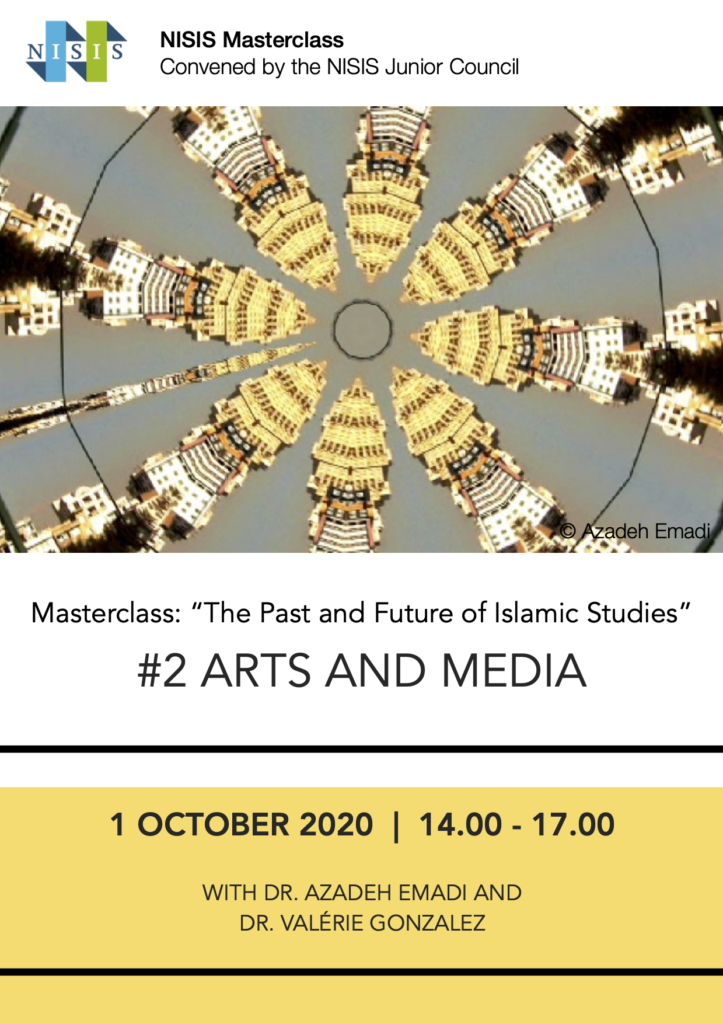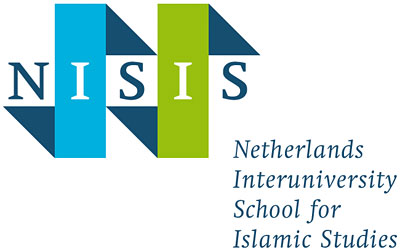Events
NISIS Masterclass #2: “Arts and Media”

Image from the work of Azadeh Emadi, who is a speaker for the event.
On the 1st of October, 2020, the second session of the NISIS Masterclass Series “The Past and Future of Islamic Studies” will be hosted by the NISIS Junior Council.
In this session, we continue to face Islamic studies at a cross-roads. This time we look at Islamic art and media. Throughout the years, scholars in this subfield have borrowed their practices and theories from orientalism to archeology to social sciences, looking at both traditional and contemporary artistic and architectural works of the Islamic world. Dr. Valérie Gonzalez tackles the conceptualisation of visual forms in Islam by looking at the Qur’an. Taking this central text as an outset, this talk illustrates a refreshing method to study connections between science, aesthetics and religion. Coming from a practice-based background, Dr. Azadeh Emadi shifts our attention to digital media production. Through her interdisciplinary approach she creates links between historical concepts, Islamic objects and contemporary techniques and theories, that are radically distant from what we know in the field.
In order to receive EC junior members have to audit and actively participate in discussions. If you have not yet registered for the Masterclass Series, please do so here. In order to receive ECTS, it is required to attend at least 3 out of 4 sessions.
Dr. Valérie Gonzalez (SOAS University of London)
“Valérie Gonzalez received her doctorate in the Humanities, specialising in the Arab world, from l’Université d’Aix–en–Provence and holds a diploma in painting from l’Ecole des Beaux–Arts de Marseille–Luminy. She is currently a Research Associate at SOAS University of London at the department of History of Art and Archeology. Dr Gonzalez is the author of amongst others Beauty and Islam: Aesthetics in Islamic Art (I.B. Tauris in association with The Institute of Ismaili Studies, 2001). Her research focuses on Islamic art history, aesthetics, phenomenology and visuality.”
Dr. Azadeh Emadi (University of Glasgow)
“As an artist and scholar, one of the aims in my work is to create a cross-cultural dialogue through creative works. To do so, I look into classical and historical Persian-Islamic philosophies, worldviews, and arts in order to critically reflect on our current societies, and to explore ways in which we could expand our perception, and understand the perception of others. In this session I share part of my creative journey of developing a research and practice method based on the theory of Substantial Motion by Persian Philosopher, Mulla Sadrā Shirazi (1571–1636). Islamic philosophy considers invisible (e.g. intelligible and imaginal) realms, of which the Divine is the most important. For Sadrā, in particular, these other realms directly influence our existence in the material universe, and vice versa. Sadrā’s philosophy has energised my research as he gives credit to the experiences of all entities, not only human beings. It allowed me to push the boundaries of Western Phenomenology and consider phenomena in the digital realm.”


